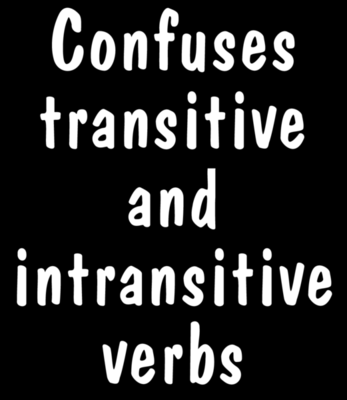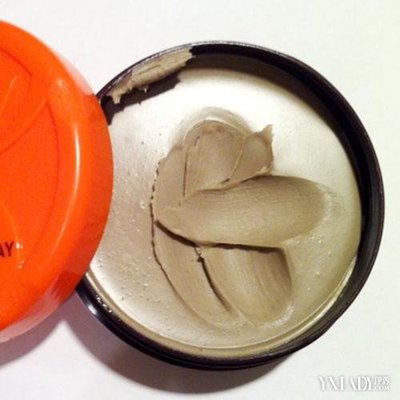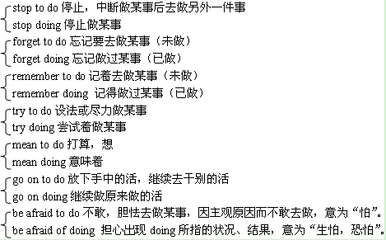动词根据其后是否带有宾语,可分为两类,分别是:及物动词(transitive verb)、不及物动词(intransitive verb),缩写形式分别为vt. 和vi.。
英语动词是句子的核心。它既决定着句子意思的表达同时又决定着句子的语法结构。首先,要分清及物不及物动词。
动词及物与不及物通常有以下几种情况:
a. 主要用作及物动词。
及物动词后面必须跟宾语。
可用于:"主+谓+宾";"主+谓+双宾";"主+谓+宾+宾补"结构。如:
he reached paris the day before yesterday.
they asked me to go fishing with them.
类似的还有:
buy, catch, invent, found, like, observe, offer, prevent, promise,
raise, find, forget,receive, regard, see, say, seat, supply, select,suppose, show, make, take, tell....
1、及物动词是必须带宾语的动词,可分为如下两类。
1) 及物动词+宾语例:I love my home. 我爱我家。
He bought an English dictionary. 他买了一本英语词典。
2) 及物动词+间接宾语+直接宾语例:
She taught us maths. 她教我们数学。
My mother gave me a new pen. 母亲给了我一支新钢笔。
提示:常用的能接双宾语的及物动词有:
give, teach, buy, lend, find, hand, leave, sell, show,
read, pay, make, offer, build, pass, bring, cook等。
b主要用作不及物的动词。不及物动词后面不跟宾语。只能用与:"主+谓"结构。
this is the room where i once lived.
类似的还有:
agree, go, work, listen, look, come, die, belong, fall, exist,
rise, arrive, sit, sail, hurry, fail, succeedappear get
feelkeep makeproveremain restrise seem standstay
turn turn out, wait, cry, smile, laugh, stop, rain, snow
2、 不及物动词不及物动词不需要跟宾语,本身意义完整。
例:She came last week. 她上周来的。
It is raining hard. 正下着大雨。

Class began at half past seven. 7点半开始上课。
What happened yesterday? 昨天发生了什么事?
c.既可以用作及物又可以用作不及物的动词,其意义不变。
如begin 都是作"开始"讲。everybody , our game begins. let us begin our game.
类似的还有:start, answer, sing, close, consider, insist, read, learn, prepare, pay, hurt, improve....
d.既可以用作及物又可以用作不及物的动词,其意义完全不同。
这类动词作不及物动词是一个意义;而作及物动词时却是另一个意义。
如lift作不及物动词时是指烟雾的"消散"。
we saw the mountain when the clouds lifted.
lift作及物动词时是"升高;举起"。
he lifted his glass and drank.
3、同一动词有时可用作及物动词,有时可用作不及物动词。
例如:She can dance and sing. 她能唱歌又能跳舞。
(sing在此用作不及物动词。)
She can sing many English songs. 她能唱好多首英文歌曲。(sing用作及物动词。)
类似的还有:beat vi.跳动 vt. 敲、打;
grow vi.生长 vt. 种植
play vi.玩耍 vt. 打(牌、球),演奏
smell vi.发出(气味) vt. 嗅
ring vi.(电话、铃)响vt.打电话
speak vi.讲话 vt. 说(语言)
hang vi. 悬挂 vt. 绞死
operate vi.动手术 vt. 操作
根据其后是否带宾语,动词可分为及物动词(带宾语)和不及物动词(不带宾语)。如:
When will he arrive? 他什么时候到?(arrive 不带宾语,为不及物动词)
He reached Beijing yesterday. 他昨天到达北京。(reach 带了宾语,为及物动词)
有的动词既可用作及物动词也可用作不及物动词:
The child is playing. 这小孩在玩。(不及物用法)
The child is playing the piano. 这小孩在弹钢琴。(及物用法)
He is writing. 他在写字。(不及物用法)
He is writing a letter. 他在写信。(及物用法)
The boy is reading. 这男孩在阅读。(不及物用法)
The boy is reading a magazine. 这男孩在看杂志。(及物用法)
20个常见的不及物动词短语
1.break down (stop functioning 坏了,不好使了)
that old jeep had a tendency to break down just when i needed it the most.
2.catch on (become popular 出名)
popular songs seem to catch on in california first and then spread eastward.
3. come back ( return to a place 返回)
father promised that we would never come back to this horrible place.
4. come in ( enter进入)
they tried to come in through the back door, but it was locked.
5.come to ( regain consciousness恢复意识)
he was hit on the head very hard, but after several minutes, he started to come to again.
6.come over (to visit访问)
the children promised to come over, but they never do.
7.drop by (visit without appointment 顺便拜访)
we used to just drop by, but they were never home, so we stopped doing that.
8.eat out (dine in a restaurant 外出吃饭)
when we visited paris, we loved eating out in the sidewalk cafes.
9. get by ( survive凑合,过得去)
uncle heine didn't have much money, but he always seemed to get by without borrowing money from relatives.
10.get up ( arise起床)
grandmother tried to get up, but the couch was too low, and she couldn't make it on her own.
11. go back ( return to a place 回到)
it's hard to imagine that we will ever go back to lithuania.
12.go on ( continue继续 )
he would finish one dickens novel and then just go on to the next.
13. go on (2) ( happen发生 )
the cops heard all the noise and stopped to see what was going on.
14. grow up ( get older变老 )
charles grew up to be a lot like his father.
15.keep away ( remain at a distance保持距离 )
the judge warned the stalker to keep away from his victim's home.
16. keep on (+动名称) ( continue with the same继续保持)
he tried to keep on singing long after his voice was ruined.
17. pass out ( lose consciousness, faint昏过去,晕)
he had drunk too much; he passed out on the sidewalk outside the bar.
18. show off ( demonstrate haughtily 炫耀)
whenever he sat down at the piano, we knew he was going to show off.
19. show up( arrive到达,出现)
day after day, efrain showed up for class twenty minutes late.
20. wake up (arouse from sleep醒来)
i woke up when the rooster crowed.
21.take place 发生 in 1919,the may 4th movement took place in china.
22.come out出版,出来,is the new edition of the book coming out?
23.come true 实现 your wish will one day come true . 您的愿望总有一天会实现的。
24 run out 用光 ,耗尽 do your homework before you run out of time
 爱华网
爱华网



